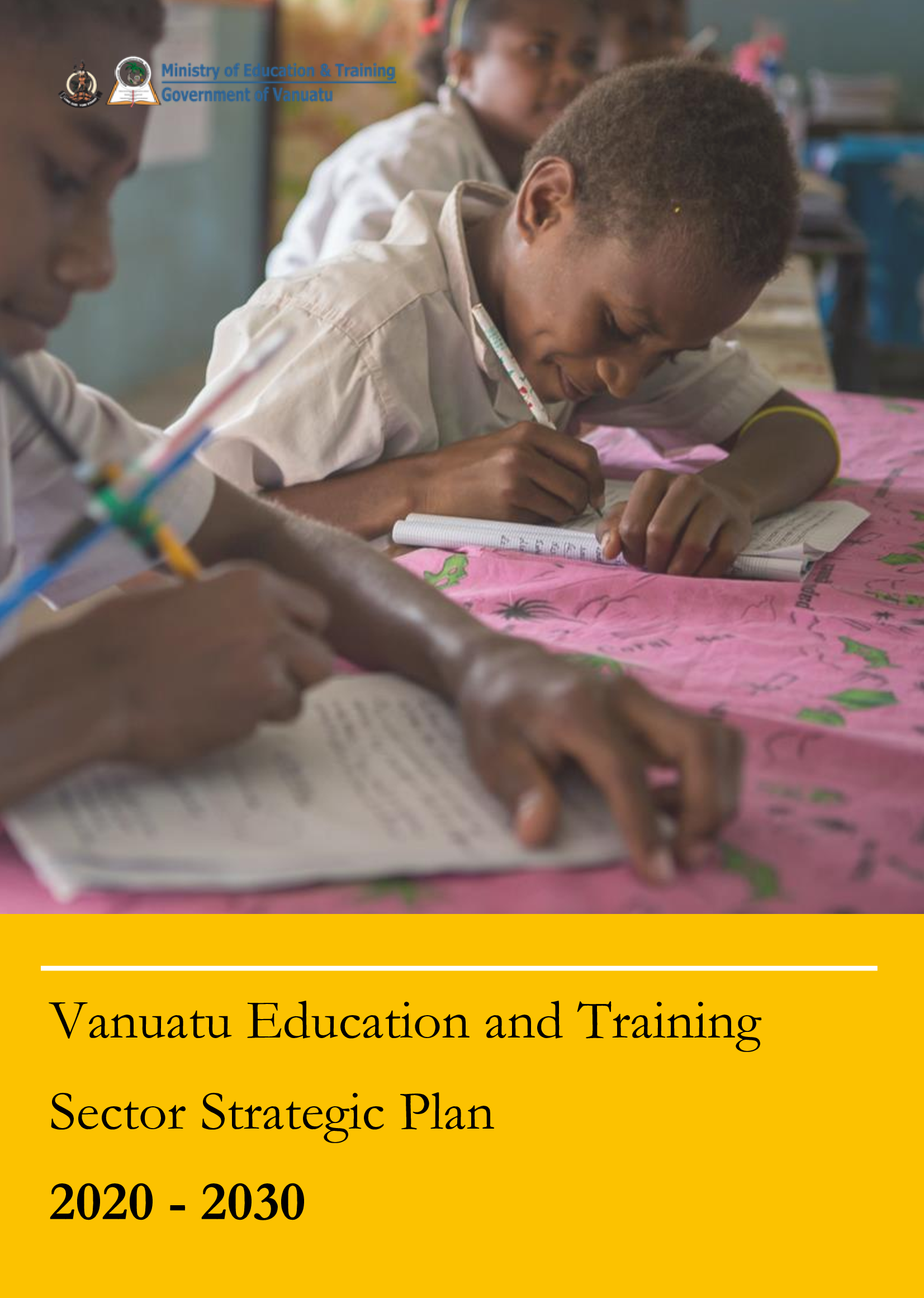Vanuatu’s Education and Training Sector Strategy (VETSS) for 2020-2030 recognizes education and training are key to a better and innovative future, protection of the country’s culture and identity, and the development of each and every individual, community, society and the nation as a whole.
The plan was developed to align with and respond to the strategic direction and intent of the National Sustainable Development Plan 2016 to 2030 (The People’s Plan).
The plan provides the direction and set priorities, taking into account the different key policy areas such as teacher quality, school subsidies, inclusive education, plurilingualism, infrastructure, curriculum, minimum standards, evidence-based policies, management systems, monitoring and evaluation, rationalization of resources, devolution, governance, partnerships and communication.
Vanuatu’s education system uses the “2-6-4–3” model (2 years of preschool, 6 years of primary, 4 years of lower secondary, and 3 years of upper secondary) plus post-secondary education.
The Ministry of Education and Training (MoET) manages the country’s education sector, supported by church education authorities.
Over 98% of primary schools in Vanuatu are either public schools or government-assisted church schools. In the latter, church-operators are designated as ‘Education Authorities’ and operate under an agreement and regulatory framework with MoET to administer schools on behalf of the government.
A total of 92,600 students were enrolled in 2019 served by 4,230 teachers in a total of 1,453 schools. Vanuatu has achieved universal primary education. Nonetheless, enrollment rates in secondary education are still low, showing that a significant number of students drops out during secondary education.
Over the past four years, more boys than girls dropped out of school at the primary and secondary levels.
Results of the Vanuatu Standardized Test of Achievement (VANSTA) showed that 35% of Grade 4 students did not achieve minimum literacy standards in English in 2017, though results have been improving over the years.
Learn more about the Pacific Regional Education Framework (PacREF)


